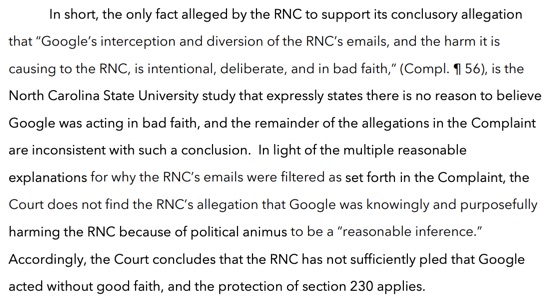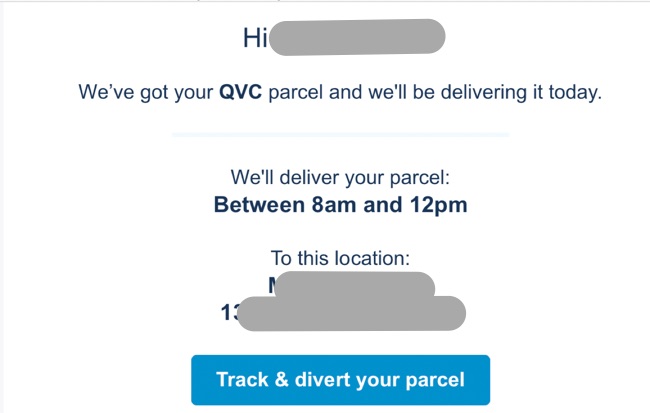If you have the feeling that bot clicks seem to be an increasing problem in the email marketing world, well, you're not alone. Email bots, also referred to as server bots, are automated systems which click on the links contained in email. Whether there has been a dramatic increase in actual bot clicks, or just in the awareness of them, they are definitely a thing.
You should never send mass or bulk email through a new IP address before you warm up that new IP address. Warming up an IP address is a critical step towards not only having good deliverability, but also to making sure that your email isn't tagged as spam, or blocked. To illustrate the importance of warming up an IP address, we're going to tell you a story.
Yesterday afternoon (8/24/23) a Federal court judge handed the Republican National Committee its head on a platter. As you may recall the RNC had sued Google, claiming that Google's spam filtering algorithm was intentionally anti-Republican. Google then countered by offering a pilot program to any political campaign that would adhere to Google's best practices for email - a spam-filter offramp, if you will - in other words they would not even have to have their email run through certain spam filters.
There is a hidden legal danger in not confirming email addresses, and yes, even in the United States. We talk a lot about email deliverability (because hey, we're the original email deliverability service). And in that context we always explain how using double opt-in (i.e. confirmed opt-in) helps immensely with deliverability by reducing spam complaints and increasing interaction rates. But now we're going to talk about something that people rarely think about: not confirming someone's email address before you use it or add it to a mailing list can have serious legal consequences for you having nothing to do with CAN-SPAM, GDPR, CASL or any email-specific law. It can also have serious consequences for others, consequences that in turn can come back to you in serious, unexpected, but entirely avoidable, legal ways.
You may have heard of Charlie Javice and her now-defunct company Frank, as they have been in the news a lot lately. But in case you haven't heard of Charlie Javice, she, through her company Frank, it is alleged, conspired to fleece J.P. Morgan Chase (JPMC) out of millions of dollars by perpetrating a fraud whereby they fabricated a user list of millions of people, including email addresses, and then used that to entice JPMC to acquire them. Here's how they did it, what happened next, and how they were brought down and are now facing criminal charges.
We talk a lot about email opt-in here, and you may be wondering "what is a good opt-in definition" or "what is the definition of confirmed opt-in" or even "how does double opt-in work?" (We get all of those questions.) If you are not sure about the exact definition of opt-in when it comes to building email marketing lists or other types of email lists, or the definition of spam, here is a quick review of what each of them mean.
There's a reason that email hygiene services are so popular: following regular email list hygiene best practices not only keeps email deliverability from tanking, but will also boost your list's performance to the moon! Regular mailing list maintenance gives you amazing open and click-through rates, and not just because you've removed the dead wood. So many email senders who know that they should follow email hygiene best practices often just can't bring themselves to abandon inactive subscribers. However, once you realize just how incredibly responsive a leaner, meaner list can be you'll not only want to perform mail hygiene maintenance regularly, you'll actually look forward to it, because it's the secret sauce that will keep you ahead of your competition. We call this secret sauce "compounded deliverability".
Why would people who request your email, maybe even pay to receive your email, still report it as spam? Here's why. By way of example, we have a customer who sends email out on behalf of a very large, very well-known institution in the financial investment world. Some of these mailings lists are paid mailing lists. By which we mean that the users paid to receive these emails. And yet, they still report it as spam. Why would they do this? Here's why.




